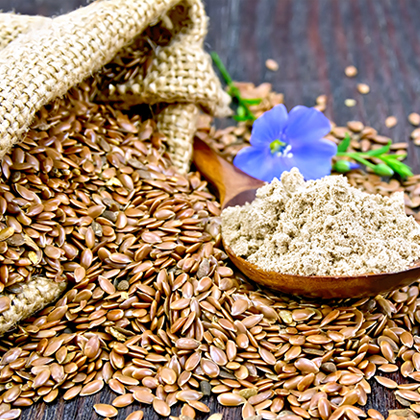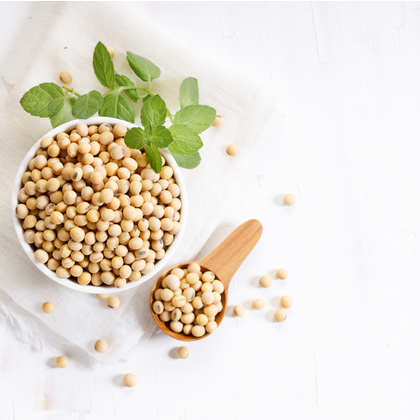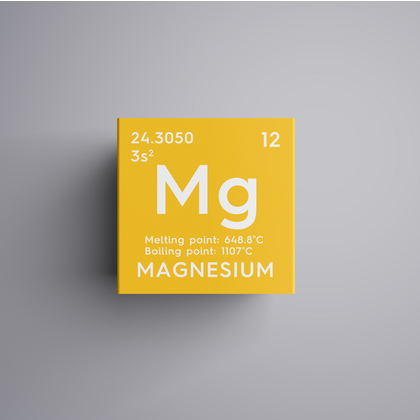
Vitamin D has an extensive role in many bodily processes, including immunity, bone and teeth health, and even emotional health. However, according to national surveys, it’s estimated that around 1 in 5 people have low vitamin D levels in the UK (1). The advice from Public Health England is that everyone should ‘consider taking a daily supplement that contains 10 micrograms of vitamin D in autumn and winter’ (2).
Recently, it’s been discovered that vitamin D may also be a beneficial addition for menopause. Some evidence suggests that low vitamin D levels may aggravate pre-existing menopausal symptoms, such as low bone mineral density and mood changes (3).
Here, we explore the benefits of optimising your vitamin D intake during the menopause to support your physical and psychological health.
The importance of vitamin D in the menopause
Having enough vitamin D is important at every life stage. For women, ensuring a regular intake of vitamin D becomes even more important during menopause. Oestrogen is believed to increase the activity of the enzyme that activates vitamin D in the body, and so, low oestrogen may diminish vitamin D levels (4).
 Also, as you age, your skin begins to thin, which makes it harder for your body to synthesise relevant levels of vitamin D when exposed to direct sunlight. Taking vitamin D supplements throughout the menopause may help to cover any nutritional shortfalls and moderate a range of bothersome symptoms.
Also, as you age, your skin begins to thin, which makes it harder for your body to synthesise relevant levels of vitamin D when exposed to direct sunlight. Taking vitamin D supplements throughout the menopause may help to cover any nutritional shortfalls and moderate a range of bothersome symptoms.
Can you manage osteoporosis with vitamin D?
Like calcium, vitamin D is widely acknowledged for its role in maintaining bone health. Calcium and vitamin D work synergistically to fortify bones: calcium builds up and strengthens bones, while vitamin D supports the absorption and regulation of calcium in the body. In this, your calcium and vitamin D intake must be adequate to fully realise the impact of each nutrient on your bones. Studies reveal that menopausal and postmenopausal women with inadequate vitamin D stores generally have lower bone density and are more prone to fractures (5).
Since oestrogen is a bone-protective hormone, declining levels in the menopause can leave you vulnerable to developing osteoporosis, a condition in which bones become brittle, weak and eventually break. Data suggests that women may lose up to 20% of their bone density in the five to seven years after the menopause (6).
Is vitamin D good for your mood?
Vitamin D acts more like a hormone than a vitamin; every cell in your body has a receptor for it, including your brain cells. As such, some researchers believe that vitamin D may even have a positive impact on mood-regulating brain chemicals, like serotonin (7).
As mood changes are incredibly prevalent throughout the menopausal transition, where many women suffer increased feelings of anxiety, panic and depression, increasing your vitamin D intake may be a helpful buffer for your emotional health.
How do you optimise your vitamin D intake?
Sunlight
The best way to obtain vitamin D is from the sun (hence its colloquial name, the ‘sunshine’ vitamin). When your skin is directly exposed to the sun’s ultraviolet B (UVB) rays, it can synthesise the highly active form of vitamin D: D3. According to data, in the UK, Caucasian adults require approximately 13 minutes of unprotected midday sun exposure to the hands, lower legs, forearms in summer, three times a week, to maintain optimal levels of vitamin D (8). Of course, in winter months, getting enough vitamin D3 from sunlight is inevitably harder.
If you have darker skin, you will need to spend longer in the sun because you have more melanin, a compound that protects skin against excess sun. Reports suggest that darker-skinned women may need anywhere between 30 minutes and three hours in the sun to produce relevant levels of vitamin D, which means that women are often at a higher risk of deficiency in the UK (9).
Dietary sources
Vitamin D3 can be found naturally in a handful of dietary sources, including oily fish, red meat, egg yolks, and liver. However, you would need to eat these foods almost every day to get sufficient levels of vitamin D3.
Also, since vitamin D3 is mainly found in animal products, this can make it more challenging for vegetarians and vegans to attain sufficient amounts. Mushrooms and fortified foods, like breakfast cereals, milk, fat spreads, orange juice, and milk, contain smaller amounts of vitamin D2, but this form is less easily absorbed by the body.
Supplements
For a convenient and reliable intake of vitamin D3 throughout menopause you should consider adding a supplement to your diet. This can be taken in a variety of ways to suit your individual needs: in drops, single vitamin D3 tablets, or in a multivitamin.
Public Health England’s guidance is that you need at least 10μg vitamin D daily – a level all of our single vitamin D supplements supply.10 You may consider taking a higher vitamin D3 formula to optimise your intake, particularly in winter months.
In this case, you may choose our Vitamin D3 1000iu (25μg), Super Strength or Vitamin D3 2000iu (50μg), Maximum Strength.
For vegetarians and vegans, you may benefit from our Vegan Vitamin D3 1000iu formula, which uses a unique oily extract of lichen – a naturally rich source of plant-based Vitamin D3.
You can discover even advice on managing the menopause via our dedicated Menopause hub.
References:
-
British Nutrition Foundation. 2020. New Reports New Advice On Vitamin D. Available online: https://www.nutrition.org.uk/nutritioninthenews/new-reports/983-newvitamind.html
-
GOV.UK. 2020. PHE Publishes New Advice On Vitamin D. Available online: https://www.gov.uk/government/news/phe-publishes-new-advice-on-vitamin-d
-
Nair. R., Maseeh A., Vitamin D: The "sunshine" vitamin. J Pharmacol Pharmacother. 2012;3(2):118-26.
-
Buchanan J. et al., The effect of endogenous estrogen fluctuation on metabolism of 25-hydroxyvitamin D. Calcified Tissue International. 1986;39(3):139-144.
-
Bener. A., Saleh N., Low vitamin D, and bone mineral density with depressive symptoms burden in menopausal and postmenopausal women. Journal of Mid-life Health. 2015;6(3):108.
-
nhs.uk. (2020). Menopause and your bone health Available online: https://www.nhs.uk/live-well/healthy-body/menopause-and-your-bone-health/
-
Dean AJ. et al., Effects of vitamin D supplementation on cognitive and emotional functioning in young adults--a randomised controlled trial. PLoS ONE. 2011;6(11): e25966.
Jorde E. et al., Effects of vitamin D supplementation on symptoms of depression in overweight and obese subjects: randomized double blind trial. Journal of Internal Medicine. 2008;264(6):599-609.
Gloth. FM 3rd, Alam. W, Hollis B. Vitamin D vs broad spectrum phototherapy in the treatment of seasonal affective disorder. J Nutr Health Aging. 1999;3(1):5-7.
-
Rhodes L. et al., Recommended Summer Sunlight Exposure Levels Can Produce Sufficient (≥20ngml−1) but Not the Proposed Optimal (≥32ngml−1) 25(OH)D Levels at UK Latitudes. Journal of Investigative Dermatology. 2010;130(5):1411-1418.
-
GOV.UK. 2020. PHE Publishes New Advice On Vitamin D. Available online: https://www.gov.uk/government/news/phe-publishes-new-advice-on-vitamin-d
Disclaimer: The information presented by Nature's Best is for informational purposes only. It is based on scientific studies (human, animal, or in vitro), clinical experience, or traditional usage as cited in each article. The results reported may not necessarily occur in all individuals. Self-treatment is not recommended for life-threatening conditions that require medical treatment under a doctor's care. For many of the conditions discussed, treatment with prescription or over the counter medication is also available. Consult your doctor, practitioner, and/or pharmacist for any health problem and before using any supplements or before making any changes in prescribed medications.
Related Posts

Olivia
Olivia Salter has always been an avid health nut. After graduating from the University of Bristol, she began working for a nutritional consultancy where she discovered her passion for all things wellness-related. There, she executed much of the company’s content marketing strategy and found her niche in health writing, publishing articles in Women’s Health, Mind Body Green, Thrive and Psychologies.
View More



